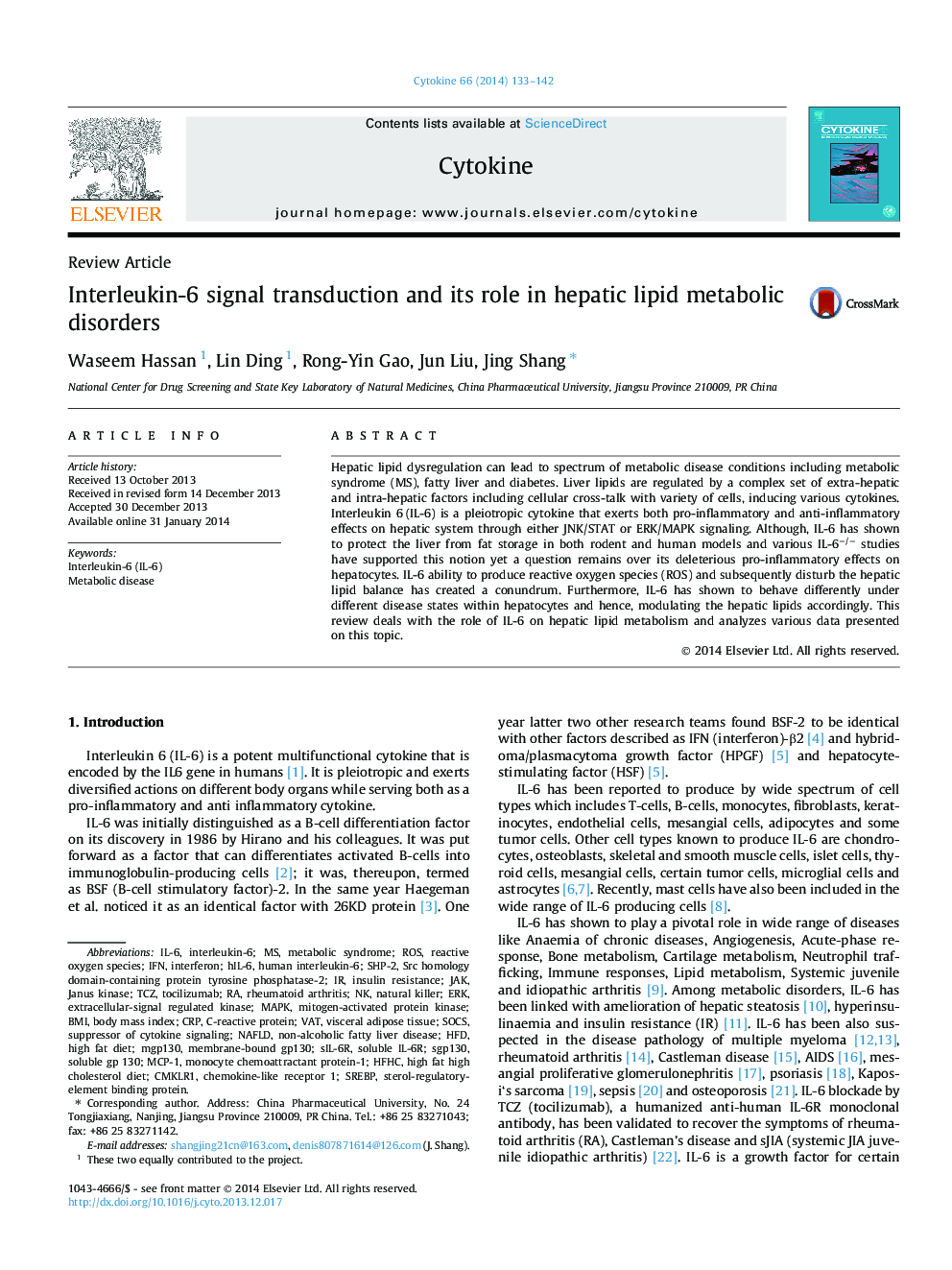| Article ID | Journal | Published Year | Pages | File Type |
|---|---|---|---|---|
| 5897585 | Cytokine | 2014 | 10 Pages |
Abstract
Hepatic lipid dysregulation can lead to spectrum of metabolic disease conditions including metabolic syndrome (MS), fatty liver and diabetes. Liver lipids are regulated by a complex set of extra-hepatic and intra-hepatic factors including cellular cross-talk with variety of cells, inducing various cytokines. Interleukin 6Â (IL-6) is a pleiotropic cytokine that exerts both pro-inflammatory and anti-inflammatory effects on hepatic system through either JNK/STAT or ERK/MAPK signaling. Although, IL-6 has shown to protect the liver from fat storage in both rodent and human models and various IL-6â/â studies have supported this notion yet a question remains over its deleterious pro-inflammatory effects on hepatocytes. IL-6 ability to produce reactive oxygen species (ROS) and subsequently disturb the hepatic lipid balance has created a conundrum. Furthermore, IL-6 has shown to behave differently under different disease states within hepatocytes and hence, modulating the hepatic lipids accordingly. This review deals with the role of IL-6 on hepatic lipid metabolism and analyzes various data presented on this topic.
Keywords
TCZHFHCSREBPIL-6sgp130HIL-6NAFLDSOCSchemokine-like receptor 1SHP-2CMKLR1MCP-1ERKHFDJanus kinasenatural killerMAPKROSsIL-6RRheumatoid arthritishuman interleukin-6interferonIFNinterleukin-6 (IL-6)interleukin-6visceral adipose tissueMetabolic diseasenon-alcoholic fatty liver diseaseTocilizumabHigh fat dietsuppressor of cytokine signalingMetabolic syndromeextracellular-signal regulated kinasebody mass indexBMIVATInsulin resistancemonocyte chemoattractant protein-1C-reactive proteinCRPmitogen-activated protein kinaseJAKReactive oxygen species
Related Topics
Life Sciences
Biochemistry, Genetics and Molecular Biology
Endocrinology
Authors
Waseem Hassan, Lin Ding, Rong-Yin Gao, Jun Liu, Jing Shang,
